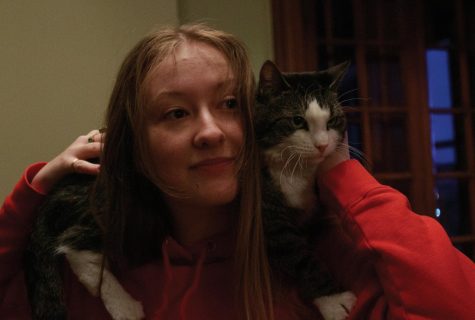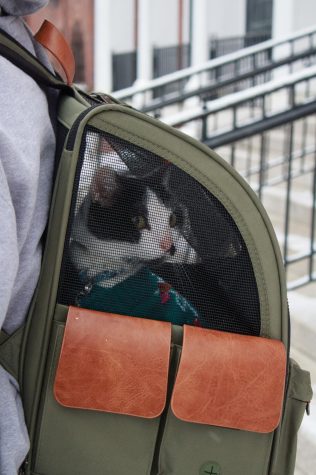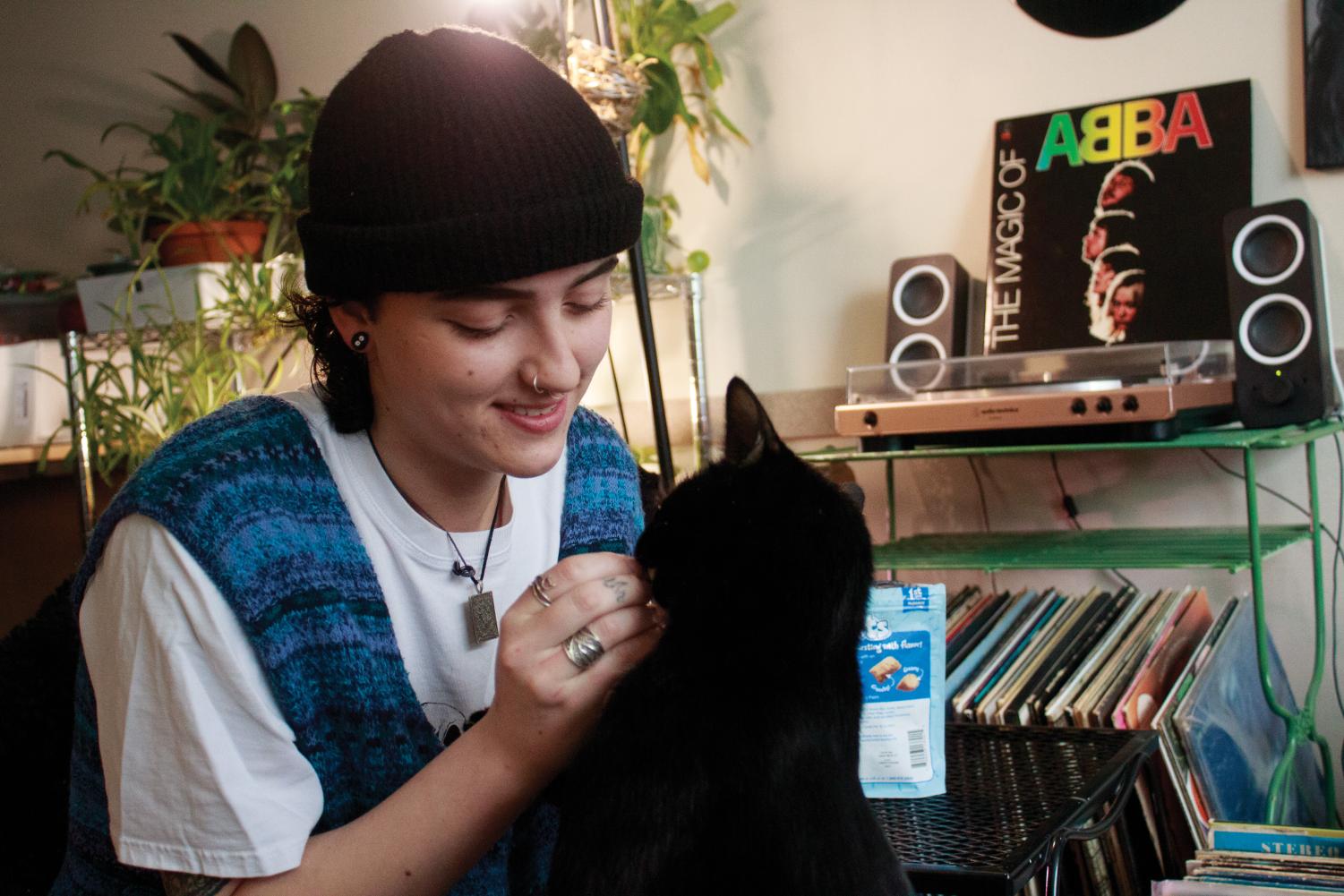“It was a necessity and not just something that I wanted:” Emotional Support Animals provide relief for students on campus
January 26, 2023
Daily interactions with a pet are proven to reduce symptoms of anxiety and depression, according to an April 20, 2015 Counseling Today article.
Under the Fair Housing Act, UVM allows students with documentation to have an approved Emotional Support Animal on campus, according to a Jan 20th email from Sharon Mone, Program Director for Student Accessibility Services.
Once students complete a form through a portal, known as myACCESS, on the Center for Academic Success website, they then meet with a SAS specialist to assess their situation and provide the necessary documentation from a physician or therapist to support their request, according to the UVM website.
The student then receives approval, or is not given permission to have an ESA on campus, according to Mone. If a student is not given approval and disagrees with the decision, SAS will communicate why they were not given approval and the student can choose to appeal the decision.
The process of obtaining approval is mainly based on an interview with an SAS representative, who can decide whether or not they feel the student’s request is valid, with one reason for denial being if the student purchases their ESA certificate off of a website online, which is seen as both a disservice to the University and the student, according to Mone.
Sophomore Lyza Sirois has their tuxedo cat, Willie, living in their dorm with them.
“We’re like two peas in a pod […] He’s really good at his job,” Sirois said. “I would say he’s a good ESA even if he doesn’t know it.”
Sophomore Catherine LaForte also has an ESA, a cat named Kane, to help structure their days and ease the stress of ADHD, they said.
“I have a second life that I need to be in charge of, which, for some people, I completely understand is a lot, but it just works for me,” LaForte said. “It’s been really helpful to give me more structure throughout the day.”
Sirois worked with SAS to obtain approval for their ESA before they were enrolled at UVM, but almost wasn’t approved because SAS did not feel it was necessary for them to have their ESA, they said. They had to strongly express the importance of having an ESA for support.
“I was like, ‘if I can’t take my cat I don’t know what I would do,’” Sirois said. “‘I don’t know if I would be able to go to UVM.’ That’s what I had to say for her to really get the fact that it was a necessity and not just something that I wanted.”
At UVM, the process of obtaining support for your anxiety can be anxiety-inducing in itself and this should be improved upon, Sirois said.
Sophomore Kai Myers had a smoother experience obtaining approval for her tabby cat named Alchemy, she said.

(Emily Kobus)
“They approved me very quickly, but they said I needed to get documentation from my doctor or therapist,” Myers said. “So I had my primary care practitioner sign these forms that they sent over stating that I would benefit from [an ESA] and that I would be able to take care of it.”
Trusting just anyone to live with your beloved cat can be scary, but finding friends willing to live with Willie was not a struggle at all, Sirois said.
“I was really transparent about having a cat when [my suitemates] decided to live with me so they were aware of him,” they said. “A few of them have mild allergies but they really wanted to live with a cat, so none of them really mind.”
The bulk of the work is taking care of the cat on campus, which mostly pertains to litter changes and buying food, Sirois said.
“You have to think about getting litter and stuff, and I have a car on campus but last semester when I had a cat, I didn’t, so I would take the bus and get litter,” they said. “So you just have to factor in if you have the drive behind having an animal.”
While having a cat on campus is helpful, it can also be a big responsibility, LaForte said.
“I definitely say it’s more work than I think people anticipate,” they said. “Say I want to go out on a Friday night, I have to think, ‘okay, well, I need to make sure Kane’s fed before I go out.’ So it’s kind of like having a kid, almost.”
Having a cat on campus helps with the anxiety of meeting new people, as it can be a conversation starter when making new friends, Myers said.
“It’s a great way to make friends at the beginning of the year,” she said. “You mention you have a cat, everyone wants to come over and see it. That’s how I’ve actually made a couple of my friends.”

LaForte says they appreciate that Kane brings joy to students around campus when they bring the cat out in his carrier.
“Seeing the smiles on people’s faces when they see him makes me feel so good,” LaForte said. “It’s nice to be able to do that for other people without having those people have to take care of the animal, so if anybody needs to be cheered up, they’re more than welcome to come see him.”
Animals are approved on a case-by-case basis when it comes to ESAs on campus, but the University does have a few restrictions, with certain animals disallowed, such as ferrets, poisonous snakes, small rodents and reptiles, according to the UVM website.
For students who are in need of the benefits of an ESA but are not able to bring one to campus, Living Well hosts therapy dogs on Fridays and encourages all students to drop by and spend some time decompressing with the dogs.
